There's a lot of evidence to show that exercise is good for your mental well-being, especially if you can get outside into green spaces, but what happens when you need to take some time off to recover? It's a very common trait amongst endurance athletes to have a low tolerance for rest days and recovery so I thought I'd write an article about how to make sure you are getting enough recovery.
So how do you make sure you are getting enough recovery? The main thing is to have planned recovery blocks and days that you stick to. In order to stick to it it might help to consider the following:
- You will not lose fitness in a few days
- You have a lot to lose by over-training
- Getting fitter is a series of cycles of training and recovery
- Ongoing stress impacts recovery
- Keep recovery the focus when needed
- Keep everything in balance
- Be clear about your motivation to train
You will not lose fitness in a few days
Whatever the reason for a bit of time off, you will not lose fitness in a few days. In fact it takes about 14 days before any significant lapse in fitness is noticed and the increased freshness(both psychological and physical) that comes from the rest may well offset the loss.
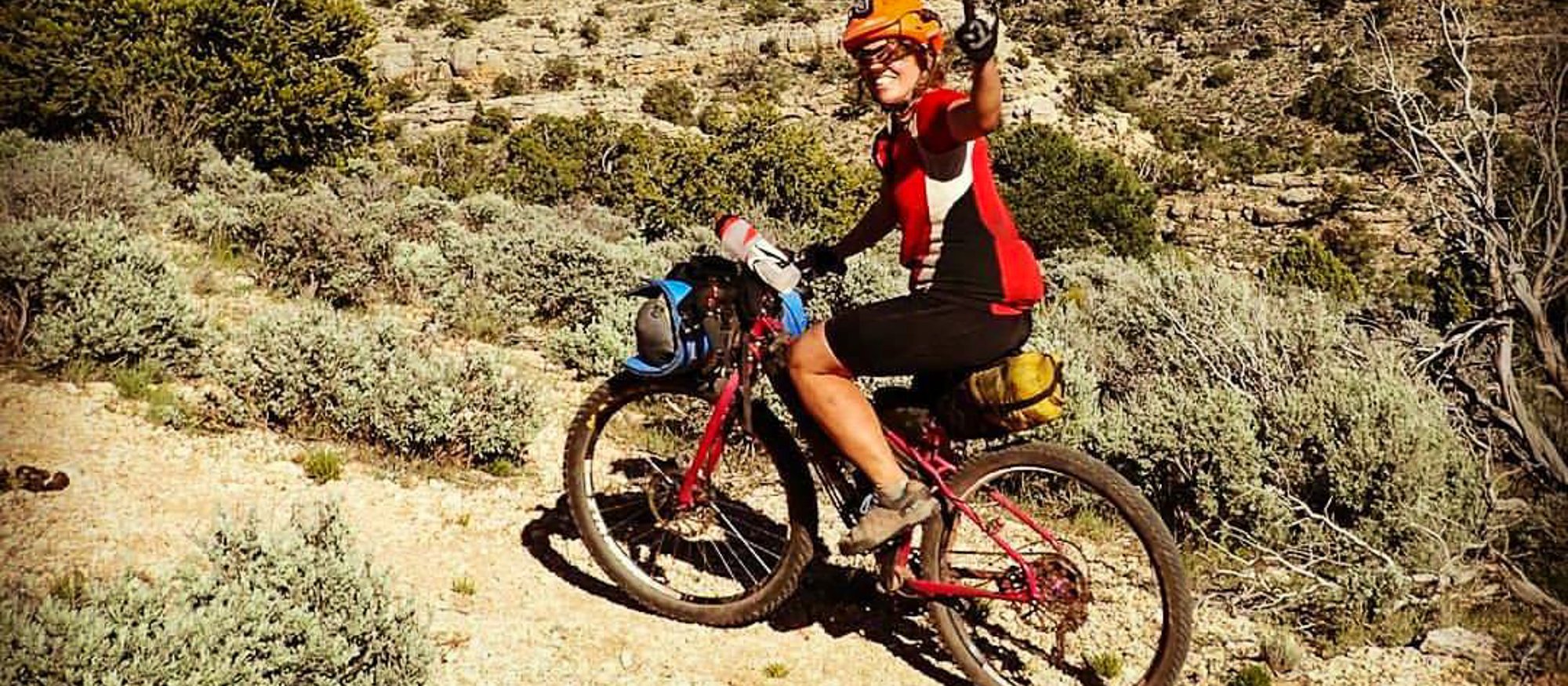
If you like your stats and data you may notice that the figures on your favourite training app start to show a drop in fitness and some watches may even kindly tell you that you are losing fitness but this is not the whole picture. For example the 'fitness score' in TrainingPeaks is actually just a rolling weighted average of your training over the last 90 days or so so all it is really telling you is that this average is going down. As this score goes down you may also notice that your Training Stress Balance (Form) goes up.
You have a lot to lose by over-training
The first step to over-training is often not taking enough recovery and what you can lose from this is massive (months to years off training with possible irreversible consequences).
Training is not a linear process; you get fitter by stressing your cardio-vascular and your body making adaptations to stop you getting as stressed the next time you put it through the same thing (or something slightly harder). Your body can only make the adaptations needed by resting and recovering.
Similarly your muscles get stronger by being broken down due to the stress you put them under when training and they then need some rest time so that they can build back stronger and more resistant to the stimulus.
When this process is interrupted by a lack of recovery time you simply get more and more tired, less and less fit and more and more weak.
Getting fit(ter) is a series of cycles of training and recovering
To help with mindset it can be useful to see your fitness journey as multiple cycles of training stimulus and recovery. The length of the cycle can be as short as 14 days and as long as 28 and depends what works best for you as an individual. Typically masters athletes need more recovery which might lead to shorter cycles; but work and other factors may also have an impact on what is the best cycle for you.
John's 3 tier system detailed in the video below can be a useful way of managing your training load:
If you look at the example below you can see the athlete's chronic training load (fitness if you like) has progressed over the last three months in 5 distinct cycles of slightly differing lengths in which periods of training were interspersed with some easier recovery days. The overall trend of the Chronic Training Load is up and the higher this got the more acute training (fatigue) he could tolerate so long as he kept having periods to recover in each cycle.
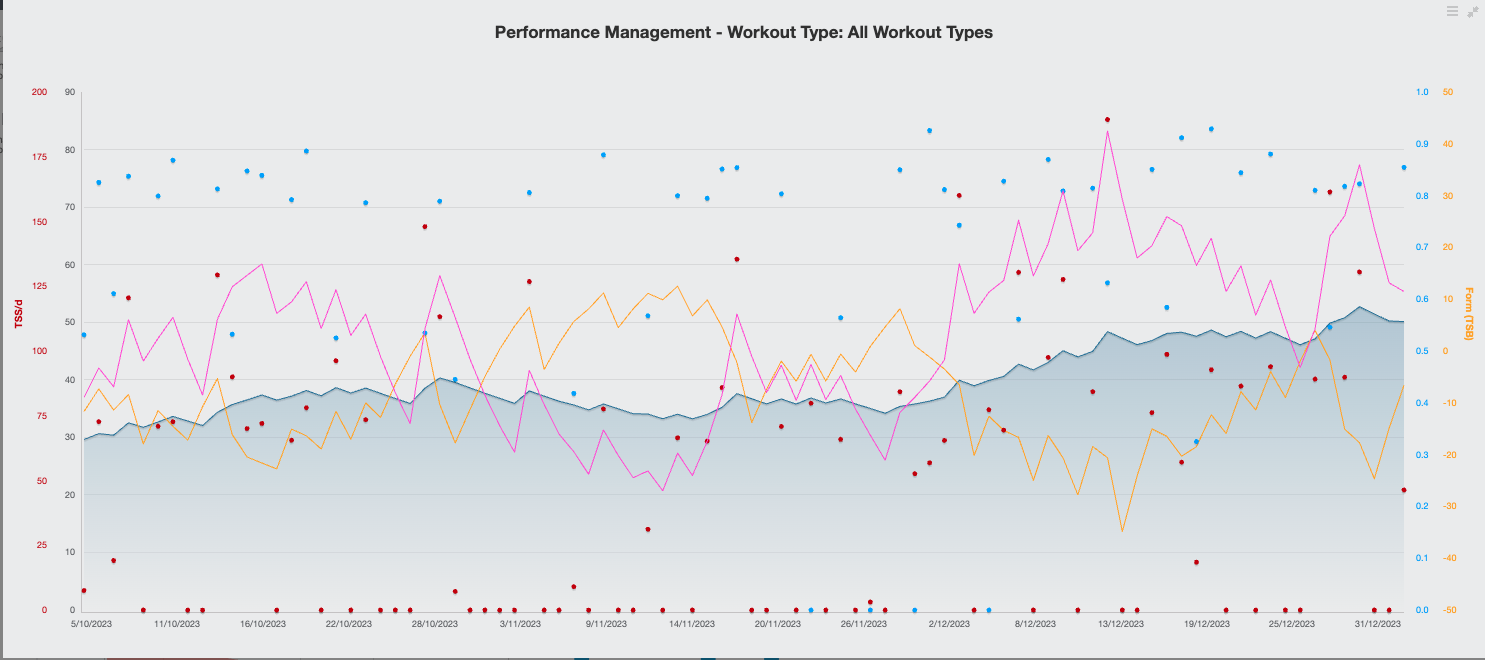
Using charts such as this can be a useful way to manage your training progress and ensure that you are getting enough recovery in your cycles of training.
Ongoing stress impacts recovery
Training data can be helpful as a guide but the numbers are not the full story; it important to think about how all the aspects of your life are impacting your training and recovery.
High levels of cortisol associated with high stress interfere with the recovery process and can put you at risk of over-training without any seeming increase in overall training load. It's therefore really important as an endurance athlete to manage stress in the rest of your life as well as in your training.
It's for this reason it's really important to have an holistic approach to training which goes beyond simply putting workouts in a planner and seeing how you execute them. Adjusting your overall training load in line with what is happening in the rest of your life will ensure that you get fitter and that you have enough energy to handle training and deal with life. This can be difficult to do without some objective help from a knowledgeable friend or coach.
Keep recovery the focus when needed
It can be really easy if you are leading a busy life to push all the things you never get time to do into your 'easy/recovery' training week, but this then compromises the recovery. How you approach your recovery should be just as carefully planned as how you approach your training sessions. Here are a few things that we know help promote recovery:
- Having fun - the positive hormones and sense of well-being achieved from doing something you find enjoyable are shown to have a positive effect on recovery. The trick is to find something that is not training; it could be very light activity (ie gentle walks) or it could be pursuing another hobby you enjoy (music, reading, films). If you are an introvert or extrovert spending time with friends who you don't see when you are training hard can work well; if you are an introvert some quality alone time can work better.
- Massage - massage therapy can not only help loosen off tight muscles but the process of being massaged by a caring professional has a positive effect on mood and recovery.
- Meditation/Hypnosis - formal types of relaxation can work very well for recovery; there are so many forms of both meditation and hypnosis so it's worth having a look into it to find out what might work for you. If you are not one for sitting still, doing a mindful activity might work better than trying to sit in the lotus position for half an hour emptying your mind. Studies on mindfulness and controlled breathing have shown changes in the brain activity indicative of increased concentration and decreased stress with as little as five minutes per day.
- Sleep - by far the best way to recover from hard training is sleep; this is when your body can focus on repair and, with enough REM sleep when your brain can reset. If you don't typically get much sleep on your easy weeks having an afternoon nap instead of training might well be the best thing you can do to promote rest and recovery.
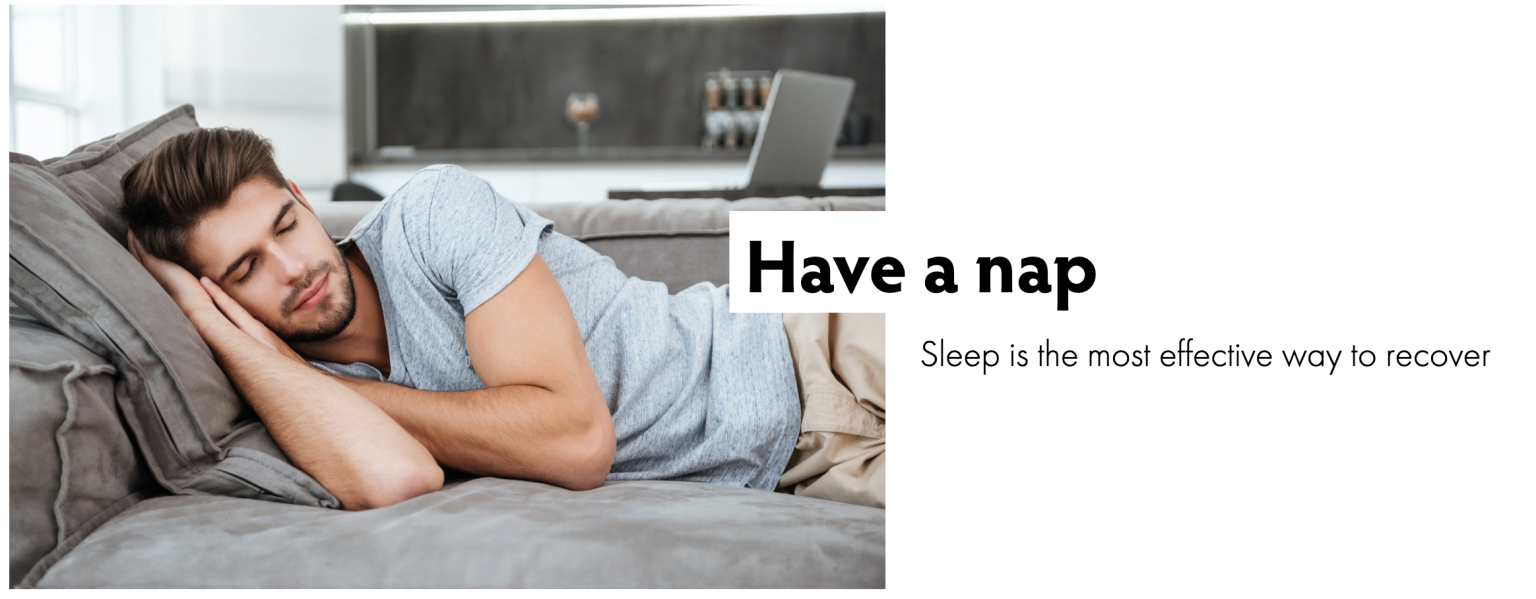
Keep everything in balance
Life is complicated and has many facets; even professional athletes have more in their lives than training and racing. It's important to keep all aspects of your life in balance in order to promote mental well-being. A useful way to do this is to spend time thinking about the key aspects of your life and whether they are in balance.
A psychological exercise that I like to use for this is the Wheel of Life. This typically categorises human life into 7 'goods,' although when I do this exercise with clients I add an 8th (training/sport). I quite like to do this as a pen and paper exercise but depending on your personality and learning style you may prefer to do this more as a discussion or on the computer where you can project numbers into graphs. There are also many apps which enable you to do a version of this exercise.
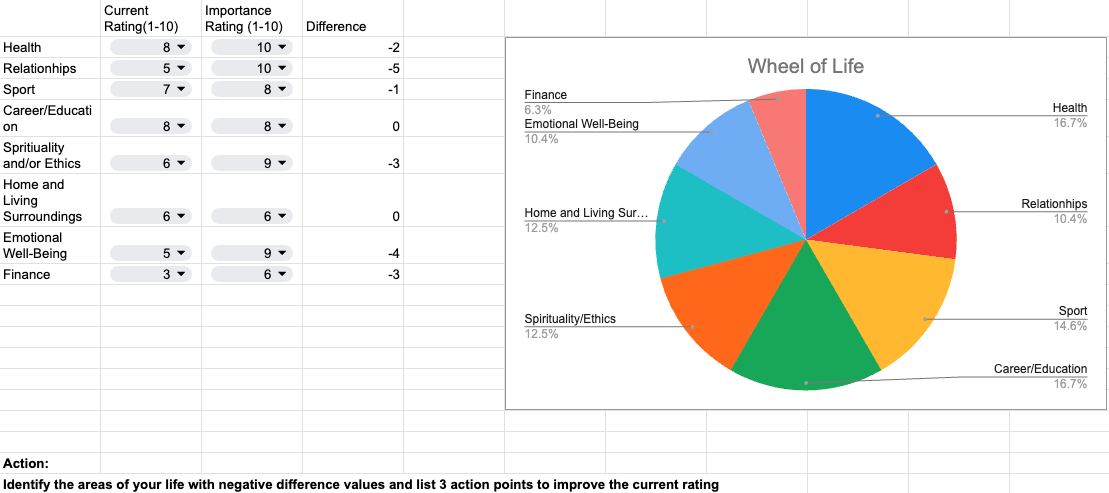
The key is to find the balance that works for you and identify areas where the importance of an item is higher than it's current value. Drawing out the specifics of why it is rated so low and what you can do to raise it then forms part of your plan for creating a better balanced life for yourself.
Be clear about your motivation for training
Whether you are training for performance, mental well-being or to keep generally healthy it's important to identify the reason why you are training and to double check that the reason is a healthy one. Over-training can often be the product of losing sight of the motivation for training or because the motivation is not a healthy one/has become unhealthy.
This can lead to obsessively exercising making what was once a healthy aspect of your life self-destructive. Signs that exercise has become an obsession and/or destructive for you include:
- Knowledgeable others expressing concern for the way or amount you are exercising
- Using exercise to feed an already known/established obsession (e.g. weight loss, calorie control)
- Missing or being late for important events commitments for exercise (e.g. work, important meetings)
- Consistent lack of fun/enjoyment in your sport
- Poor and/or reduced performance
- Recurrent injuries
- Recurrent infections
- Disturbed sleep
- Excessive weight loss
- Poor concentration and/or thoughts about training interrupting the day to day flow of life
- Excessive and consistent soreness from training
- A negative change in your mental health/mood for which there is no other explanation
If you think you may suffering from some obsessive problems around exercise seek the help of your GP and/or a mental health professional.
Additional Questions?
How much recovery should I take?
This varies from athlete to athlete; if you are using an app like TrainingPeaks you should aim to take enough recovery for you Acute Training Load (Fatigue) to drop and your Training Stress Balance (form) to around zero (give or take a few points either way); if you are tapering for a big event you would want the form to be even greater. Within each cycle of training athletes will typically need 5 to 7 days at the end of each harder block to recover, but within the block you need to plan in easier days. My usual strategy is to give a recovery focussed day after 1 or two harder days depending on the athlete's fitness.
Do I have to rest completely?
Some complete rest days are helpful from time to time and again, depending on the athlete. However, recovery can also take the form of light activity (easy walk/jog or light bike spin, yoga, pilates) or even light cross training (swimming, skiing). Light means short and easy (a 4 hour walk is not a rest or recovery). Some people find the benefit from a complete day off a few times per week, others find they might only need complete rest once or twice per month. Don't be afraid to experiment a little and find what works for you.
January 2, 2024

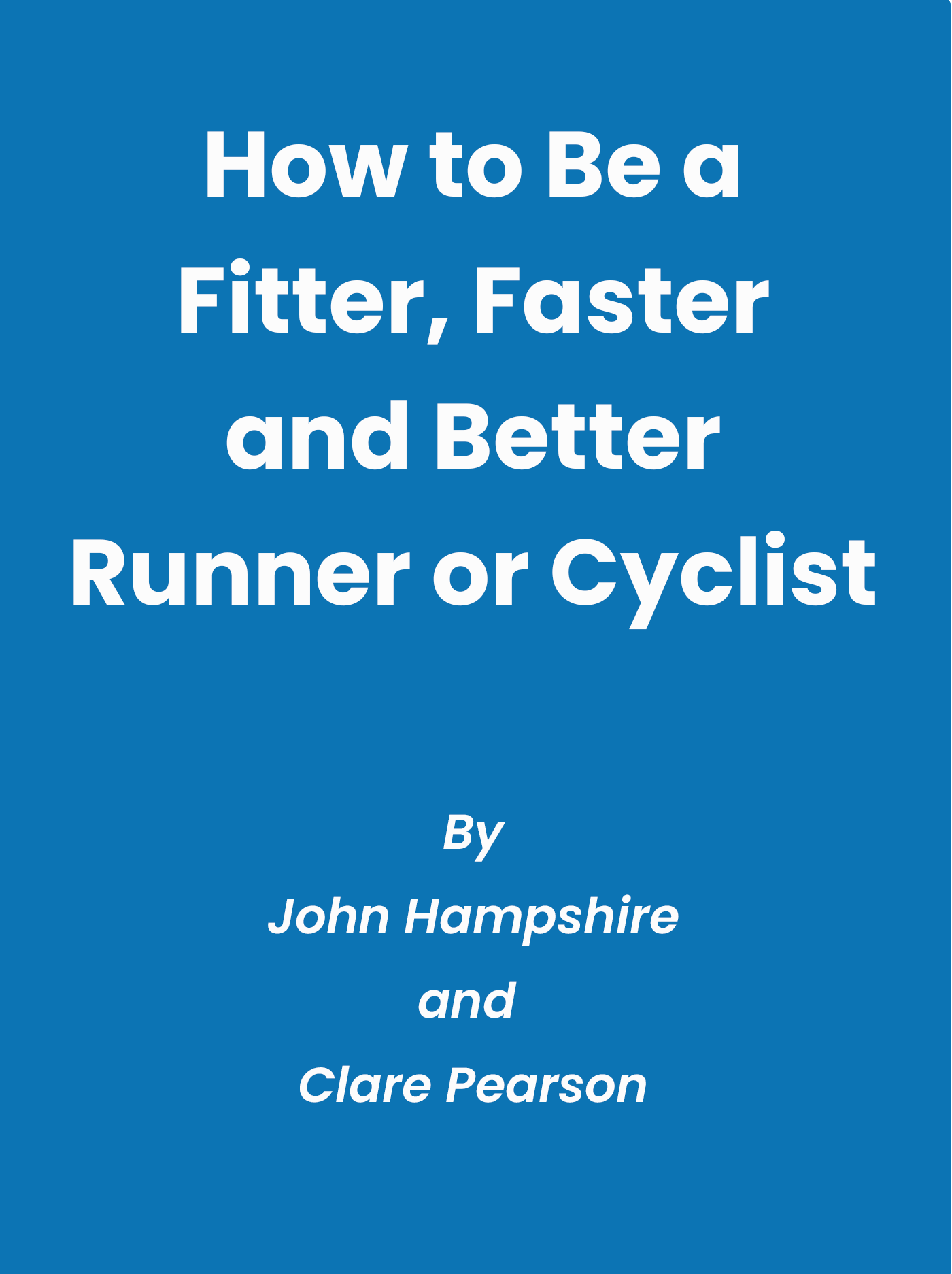
Comments